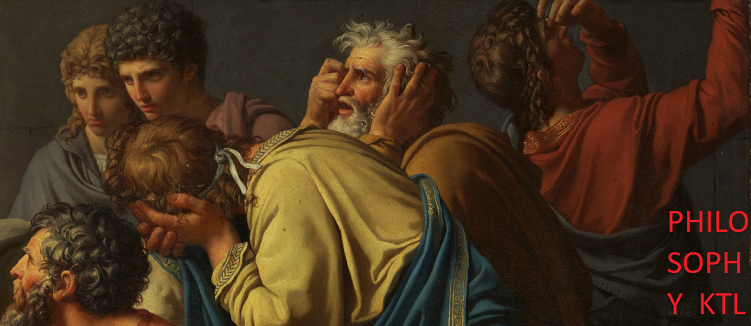The ethical theories of the two philosophers would seem to derive from their respective ontologies as follows. If the ability to discern good things from bad depends on some relation to a substantial "Idea of the Good," then it is of paramount importance for one's life to establish the relation to it which will allow one to use it as a measure or reference for the good and bad in things. But since this Idea is simple, having it available as a measure seems to be a matter not of knowing some essential fact or facts about it (i.e. having a definition), but rather of simply having it in view in some sense which is very difficult to define, but which is more like a transformation of the soul than the acquisition of a piece of information. Or, if the good in primary substances is dependent on them for its existence, and indeed is only in a secondary sense, then one has to have a keen eye for the ways in which things are, and this perceptiveness develops only through a life of virtue, which is to say, a life devoted to such action and restraint as eradicates confusion and promotes clarity whenever an occasion arises to do so.
Despite the coherence with which these two philosophers seem to have produced models for living based on theories about particulars and universals, the emphasis on this ontological point of tension between the teacher and the student distracts from the real worth of the ethical thinking of both. It turns the true story on its head by implying that each of them believed he had reached a fundamental understanding of being which had then to be applied to a certain set of beings, namely, those which are good, in their relation to the universal "good." On the contrary, the writings of Plato and Aristotle are saturated with a sense of humility before the good, and from the beginning of every inquiry, an attentiveness to its intimations.
Then would not an awareness of [the good] have great weight in one's life, so that, like archers who have a target, we would be more apt to hit on what is needed? But if this is so, one ought to try to get a grasp, at least in outline, of what it is and to what kind of knowledge or capacity it belongs.
Aristotle, Nicomachean Ethics, 1.2 (emphasis mine)
"But, you blessed men, let's leave aside for the time being what the good itself is—for it looks to me as though it's out of the range of our present thrust to attain the opinions I now hold about it. But I'm willing to tell what looks like a child of the good and most similar to it, if you please, or if not, to let it go."
"Do tell," he said. "Another time you'll pay us what's due on the father's narrative."
"I could wish," I said, "that I were able to pay and you were able to receive it itself, and not just the interest, as is the case now. Anyhow, receive this interest and child of the good itself. But be careful that I don't in some way unwillingly deceive you in rendering the account of the interest fraudulent."
Plato, Republic, VI 506e-507a (emphasis mine)
Terms like idea or phronesis should not be regarded as elements of formal ontological or anthropological systems, applied as an afterthought to ethics. Rather, they are in themselves essays upon the good. Thinking the Good as an eminently substantial entity, thinking it as a teleological perfection—these are ways toward the Good itself, thrusts in its direction, not unshakable propositions on which to found judgments about it.
Should we avoid using these terms that fall short of an absolute cognition of the good itself as it is in itself? Yes, we should, if and when we see an occasion for another, deeper thrust, for which we should be ever watchful. But in the meantime our inheritance of these advances on the good must be well-invested.

